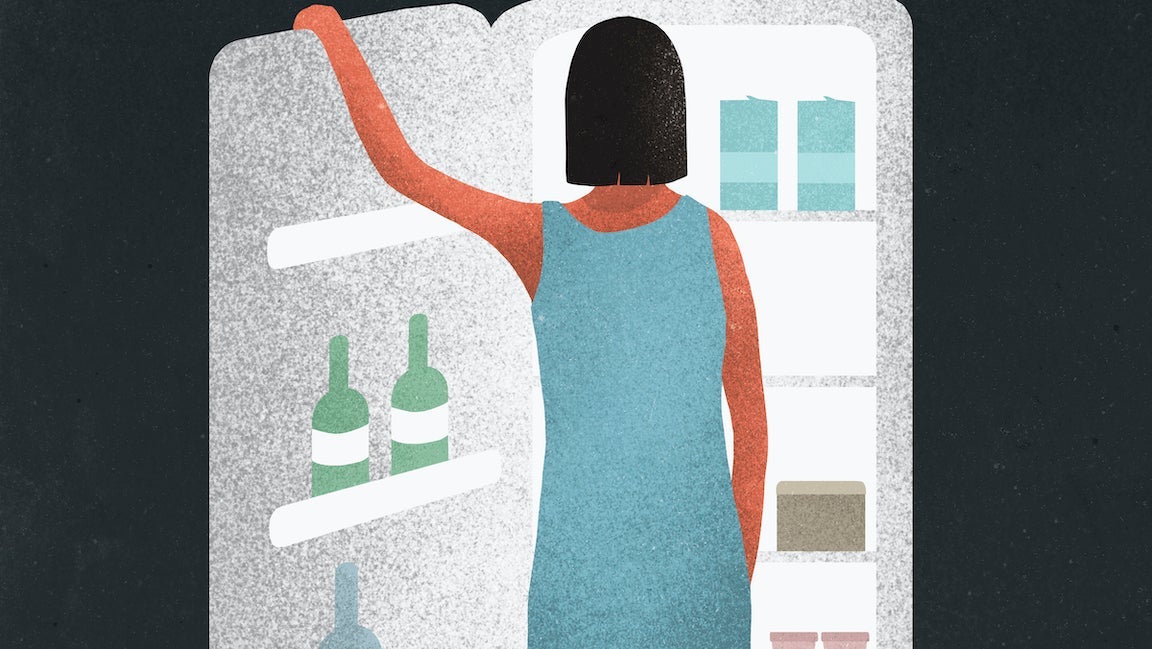Dinner is over and you’re getting ready to turn in for the night — but your stomach is wide awake. To eat a bedtime snack or not to eat a bedtime snack? That is the question you might be pondering as you stand there, in front of the fridge. There’s a lot of confusion and misinformation about eating after dinner.
Common dietary wisdom may tell you to avoid the temptation for nighttime eating altogether. We’ve been told that snacking after dusk can lead to unwanted weight gain, derail quality sleep and drive down health. But if you’re genuinely hungry late in the evening, should your only option be to tough it out until morning, even if you’ve been working out like crazy? And if it is, in fact, okay, what are the best things to eat at that time?
Read on to find out why you may not need to stay out of the kitchen once the darkness has taken hold if you’re smart about dealing with your snack attacks.
Late-Night Snacking Pros and Cons
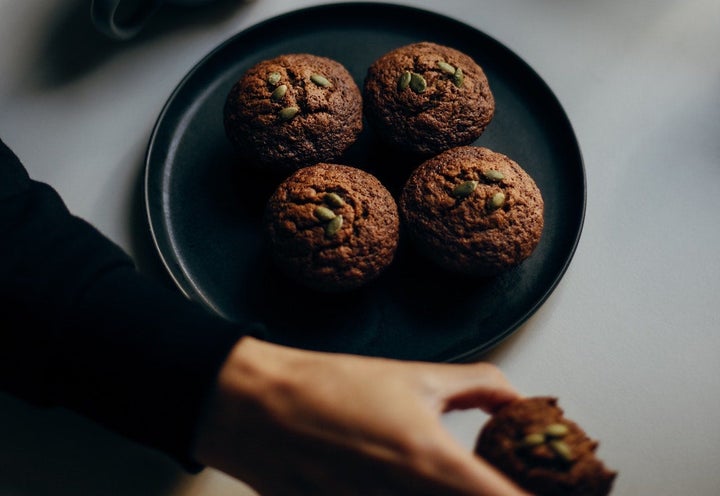
You may have heard that eating after dinner isn’t good for you, while others say it has nothing to do with when you eat but overall that matters concerning health and performance. Like most nutrition debates there are good arguments to be made supporting both camps. Timing, quality of food and quantity of food all affect whether late-night nibbles can work for or against you.
One theory on why late-day snacking can contribute to weight gain is that the calories consumed earlier in the day are on a metabolic level than the calories consumed after sunset. So, according to this idea, 300 calories at 10 a.m. are not the same as 300 calories at 10 p.m. So far research is mixed on the impact that late day eating has on body weight. For instance, found that noshing after 8 p.m. can increase the chances of packing on unwanted poundage, but determined that people who ate closer to bedtime consumed more total daily calories, yet did not have a higher body mass index. But, certainly, if your nighttime snacking habit is contributing to caloric excess it won’t do your ideal race weight any favors.
Beyond body weight, there is some research including suggesting that consuming more calories late in the day could adversely affect metabolic health including blood glucose control and fatty acid oxidation. in the American Journal of Clinical Nutrition involving 3362 adult men and women found that people who eat a larger percentage of their calories later in the day including post-dinner were more likely to be heavier, have higher levels of blood triglycerides (a risk factor for heart problems) and lower insulin sensitivity than those who took in a higher proportion of their calories earlier in the day. involving healthy volunteers found peak blood sugar levels were about 18% higher and fat burning rates about 10% lower in people after they ate at 10 p.m., shortly before bedtime, compared with getting their nutrition at 6 p.m.
It doesn’t help that what we typically reach for at night is nutritionally suspect. found that late-night eaters in the analysis consumed 40% of their daily calories after 6 p.m. Not only that, but the quality of those calories was typically worse than the calories consumed by people who ate more of their food earlier in the day, with snacks being higher in sugar and fat and lower in fiber and protein. In some ways, it’s not the act of snacking that is the sin, but the form of the snack that can come back to bite you.
While this research makes a solid case for shuttering the kitchen after dinner and taking a pause before digging into the candy drawer, no one wants to go to bed hungry. And athletes with heightened calorie and nutrient needs can benefit from a strategic night nosh. It’s important to note that most late-night eating studies have been conducted on the general population with conditions like obesity and not active runners. When nighttime eating is combined with frequent exercise training, any adverse effects are more likely to dissolve.
If athletes aren’t snacking closer to bedtime, they might be missing out on . Many hard-charging endurance athletes have a certain dietary calorie requirement and the top priority should be getting what is needed spread throughout the day which can include after sunset while engrossed in Netflix. The extra calories and protein from a snack can contribute to the continuation of muscle recovery and building from an earlier training session. Many runners may say they feel more recovered after the late day snacks, especially those who train or have competitions later in the day. For an endurance athlete gearing up for an early morning workout, a healthy snack at bedtime can help bolster carbohydrate stores for the next day. And if you had a smaller or earlier dinner you may need a pre-bedtime snack to keep the hunger monster at bay. Trying to go to bed with a growling tummy can interfere with falling asleep and getting a quality night of shut-eye is vital for athletic gains. If you eat dinner around 7:00 p.m., and don’t eat breakfast until 7:00 or 8:00 a.m. the next day, that can be a long time without food for an active person who is burning up heaps of calories.
Besides, negative outcomes associated with night snacking if nutrient-dense, lower-calorie foods are chosen instead of the typical fare like pastries and salty chips that wedge their way too often in our diets at this time of day. Certainly, a pre-bedtime supply of essential nutrients can promote positive physiological changes for health and performance.
Night-Time Snacking Guidelines
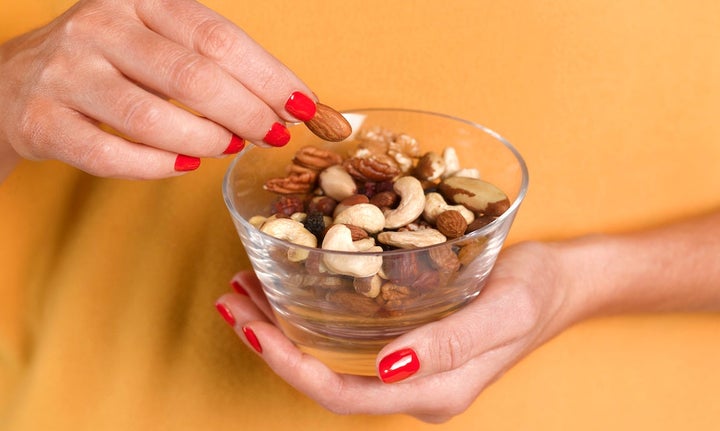
As demonstrated above, consuming late evening calories may increase susceptibility to weight gain and other cardiometabolic conditions, but mostly if making poor food choices and for someone who is not being active enough. As long as you focus on eating high nutrient foods and are fairly active during the daytime, it’s absolutely fine to eat at night. Here’s how to make after-sunset snacking work better for you.
1. Assess your snacking needs
The first step towards a healthier relationship with post-sunset snacking is to figure out why you are reaching for one. If you’re in the midst of high-volume training or completed a herculean workout on a particular day and are truly hungry after dinner then go ahead and eat something. After all, there might be only so much you can eat at dinner and the hunger pangs can be a way of your body telling you that you need more nutrition. If you’re currently waking up in the middle of the night feeling famished or feeling extra depleted the next day, you may want to start incorporating a healthy bedtime snack routine. But if you’re stuffing in more calories when couch-bound at night simply because you are bored or for emotional reasons such as stress or pandemic-induced anxiety it’s important to assess what is triggering your foray into the kitchen and create a game plan for managing it. For instance, engaging in other activities, such as taking a walk or listening to an audiobook, can help manage cravings associated with boredom or stress. Brewing up herbal tea may alleviate the dehydration that can mask itself as hunger.
The need to snack at night might also be a sign you are coming up short elsewhere in your diet. Eating enough protein and fiber throughout the day helps keep blood sugar stable leading to fewer cravings at night. Eating more protein during the day a lessened desire to snack later in the evening.
2. Be mindful
Take inventory of your late-night snacks to determine if they could be pushing you over your calorie limit for the day and holding you back from reaching your fitness and health goals. A lot of people underestimate how many calories, sugar and fat are in their snacks. It’s important to know what you are eating so you can decide if improvements need to be made. For instance, perhaps the calories in your night snack are the same on training and non-training days, which may not be ideal. If you’re smart about night snacking, you shouldn’t suffer the deleterious effects of this practice.
3. Have a plan of attack
Do a mental inventory of what you’ve eaten throughout the day and see what you may need more of and work that into your snack. So if you’ve pounded the pavement or lifted weights you may benefit from sneaking more protein into your night snack for muscle repair. Maybe you forgot to include some whole-grain carbs at dinner to assist with post-training glycogen replenishment, and so something like toast before bedtime would be beneficial.
4. Keep it simple
You can avoid many of the negative outcomes of eating after 8 p.m. by choosing better-for-you options. Choose whole-food-based snacks with paired down ingredient lists such as a plain Greek yogurt , whole-grain crackers with natural peanut butter, bell pepper strips with hummus or fruit with a handful of nuts. Going for some sort of combination of protein, fiber and healthy fat will slow digestion and the rise of blood sugar, which will keep you feeling full. For most people, not having vice foods in the kitchen is the best method to making better snacking choices. (No, you can’t outrun a lousy diet.) And, remember, it’s a snack not a meal. So unless you are running daily marathons, it’s best to cap your late-night snack at around 250 calories.
5. Know when to push back
It’s possible that for at least some individuals, eating after dinner and too close to bedtime could reduce sleep quality or cause the body to store fat excessively. So if you are making nutritious snack choices and are seeing health drawbacks, it might be a sign that your body functions better if calories are consumed earlier on and you don’t slink into the kitchen at night.
Wee Eats
Next time your stomach growls before bed, try one of these healthy and satisfying snacks to take the edge off your hunger.
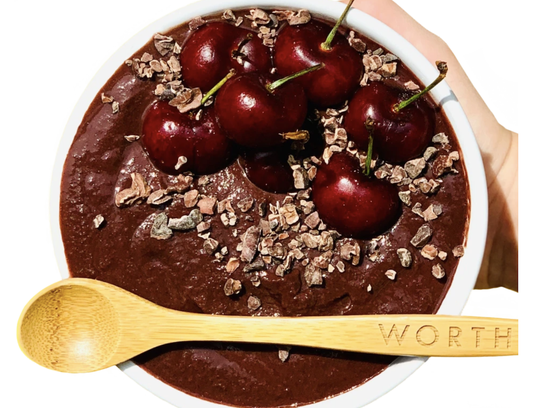
This smoothie-like bowl tastes so richly decadent it’s hard to believe that cauliflower, broccoli and beans are the leading ingredients or that there are only 2 grams of added sugar in a container.
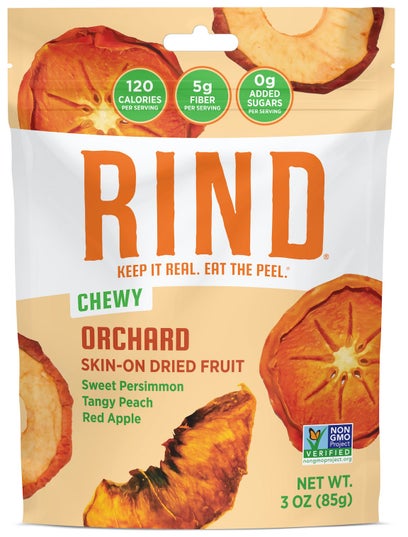
This no-sugar-added blend of dried, skin-on persimmons, peach and apple can satisfy your sweet cravings and need for more nutrients at once.
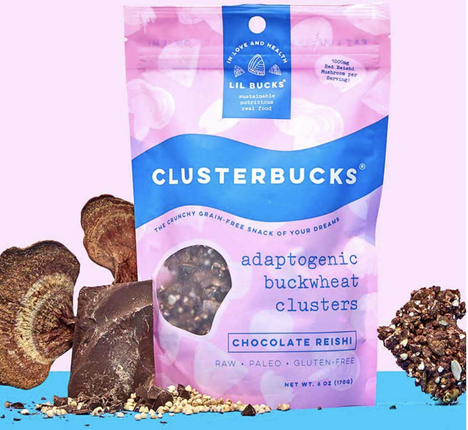
This crunch bunch featuring sprouted buckwheat, pumpkin seeds, cacao and reishi mushroom powder is a late-day nutritional home run.
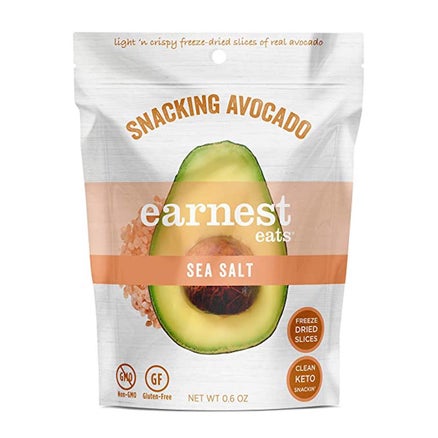
Crispy avocado, who knew? This freeze-dried avocado is a savory way to up your intake of satiating healthy fat and fiber.
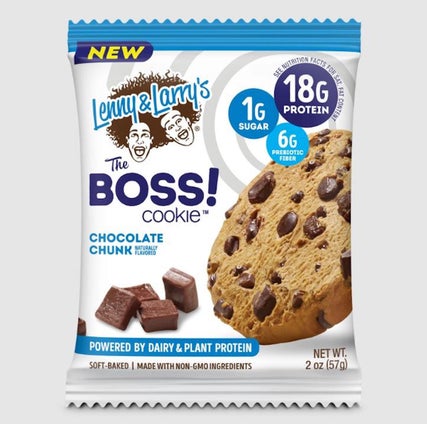
As far as cookies go, this one with plenty of protein and prebiotic fiber for better gut health will ward off hunger and guilt pangs if you leave behind only crumbs.
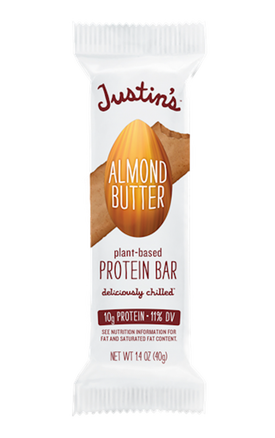
A good alternative to chocolate bars, this nutty bar will give you an extra shot of late-day muscle-building protein.


